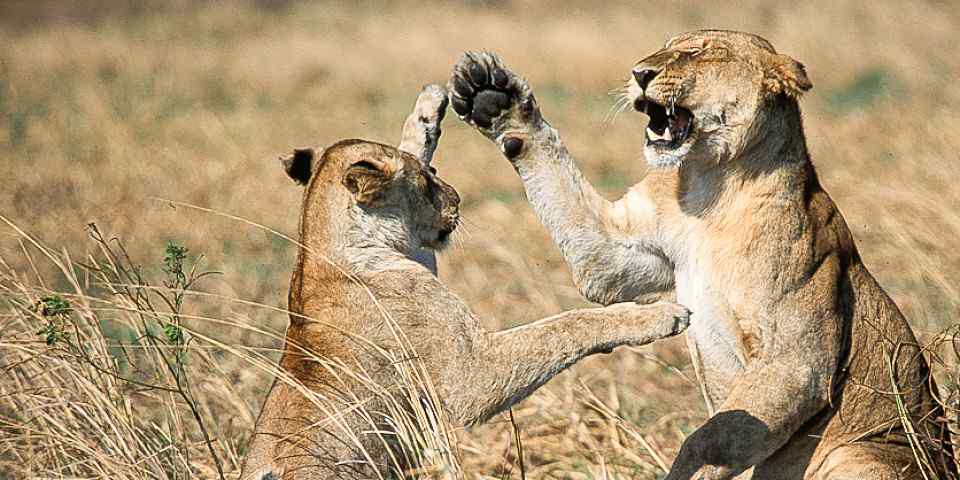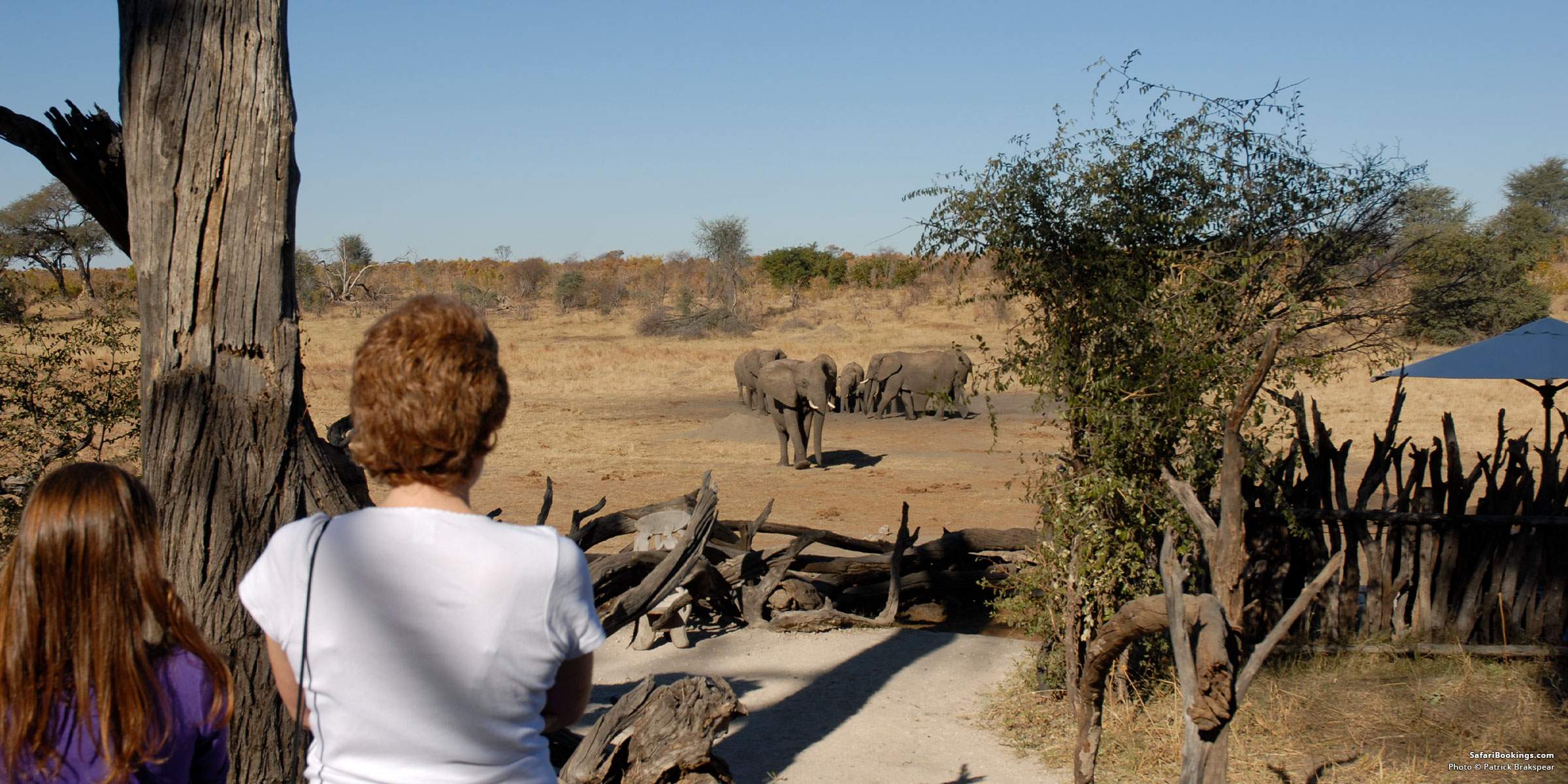
10 Considerations for Families Going on Safari
 By Patrick Brakspear
By Patrick Brakspear Patrick has been an Africa travel specialist, based in Australia, for over 10 years and prior to that was a safari operator in Mana Pools in Zimbabwe.
There are a number of challenges worth keeping in mind for families going on safari – not least of which will be cost. Below are a few considerations worth noting.
1. Minimum Age Restrictions
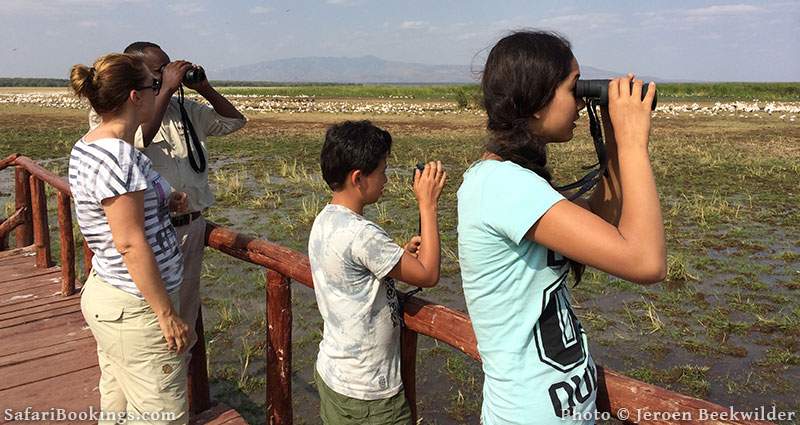
Families going on safari should be aware that although most safari camps and lodges welcome children of (nearly) all ages, some have a minimum age restriction of anywhere between four and 12 years. If you are booking through an Africa travel specialist, this will be one of the aspects taken into consideration when selecting the appropriate accommodations. However, if you are booking directly, be sure to check the relevant child policy with the camp/lodge.
2. Age Restrictions on Activities
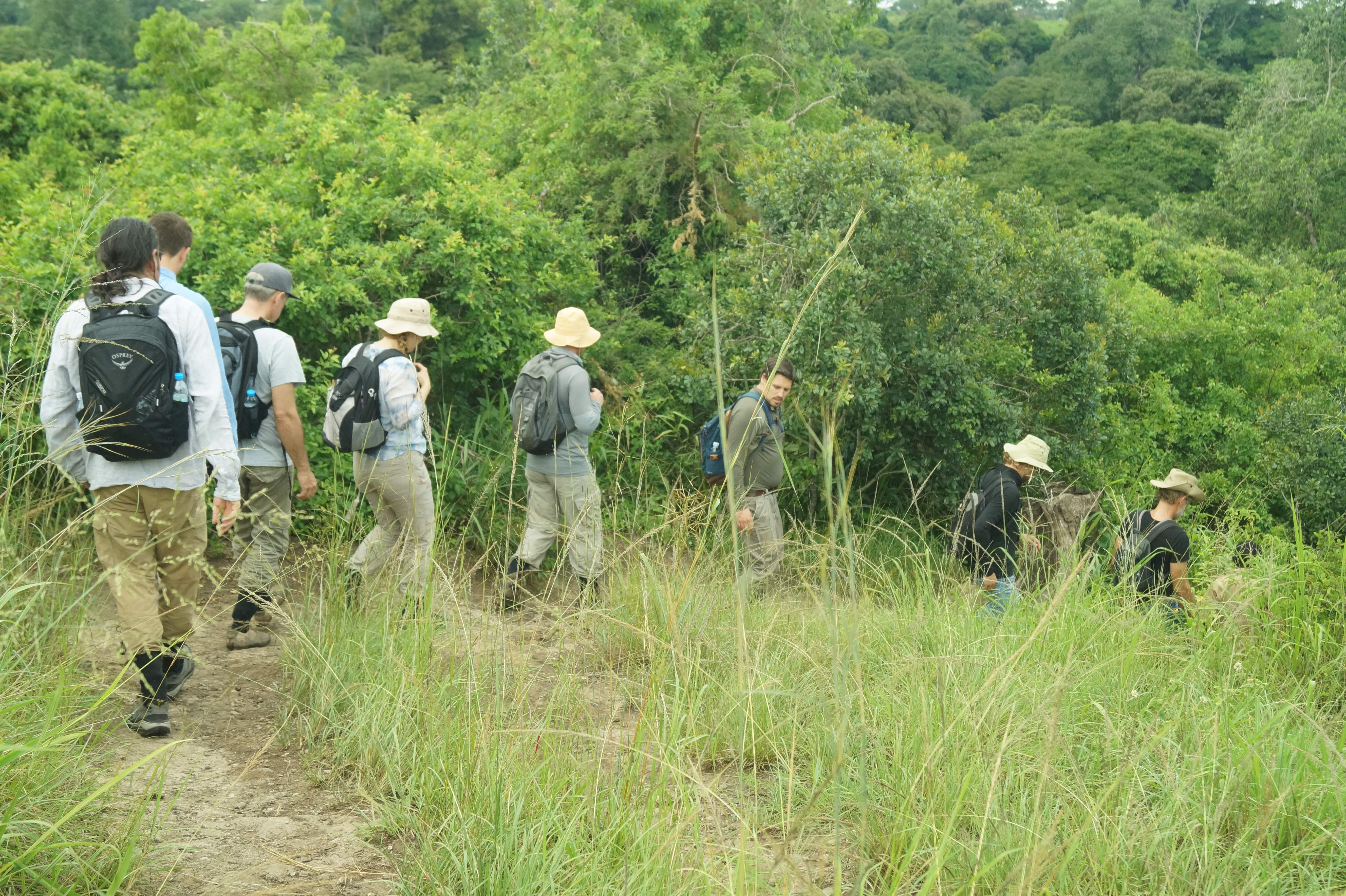
Not all safari activities are open to children of all ages. Gorilla trekking and white-water rafting, for example, have a minimum age of 15 years. Walking safaris are another activity that can vary at the camp/lodge’s discretion, and may relate to how common dangerous wildlife is in the area. You may need to exercise your parental discretion when it comes to activities such as canoeing. This is an area of personal preference. If you have teenagers, a few planned adrenaline-inducing safari activities may be just what is needed to keep them focused (and enjoying themselves).
3. Discounts for Children
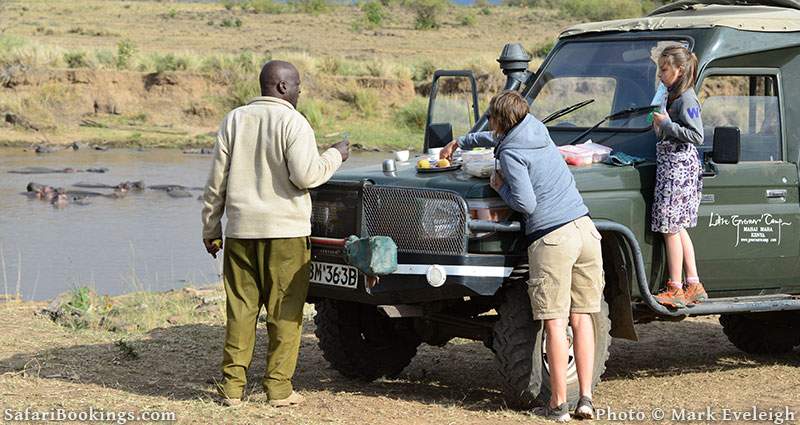
In terms of pricing, most safari camps/lodges consider anyone over 12 years of age to be an adult. However, please do not confuse this with minimum age restrictions or age restrictions that might apply for specific activities. So, children over 12 years of age generally pay adult rates. Very few safari camps/lodges offer discounts to children over 12 years, and even children under 12 years would need to be sharing with an adult to receive a discounted rate.
4. Children’s Activity Programs
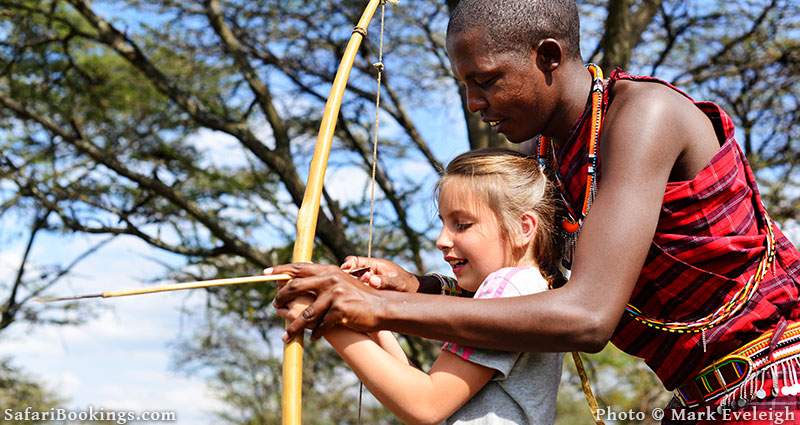
Many safari camps have children’s activity programs and some even have a dedicated guide for families. For children aged four to eight years, these programs mostly consist of a guide who takes the children under their wing. They will entertain them with a range of activities around camp (including storytelling, painting and drawing animals, birding and bug collecting). They will also keep an eye on the children while the parents go on game drives or enjoy other activities. This can then develop into short bush walks (or ‘poo walks’, during which the guides help the children collect pods, feathers, insects and leaves and teach them to identify different animal spoor and droppings) and game drives.
5. Private Vehicle
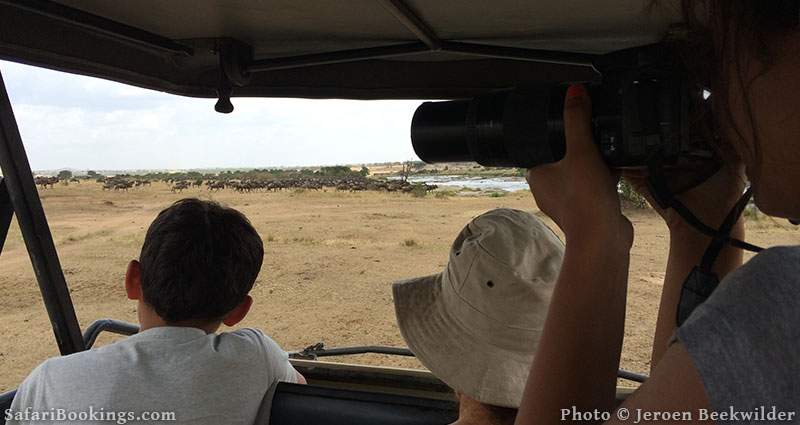
In many cases, families on safari with younger children will be required to book a private game drive vehicle (and guide). This will add to the cost and is something you should be aware of (and discuss with your Africa travel specialist). If your camp or agent has not already suggested a private vehicle, it may be an idea to request one. This way you’ll be able to share the wildlife experiences with your kids and can return to camp when they are tired.
6. Sleeping Arrangements
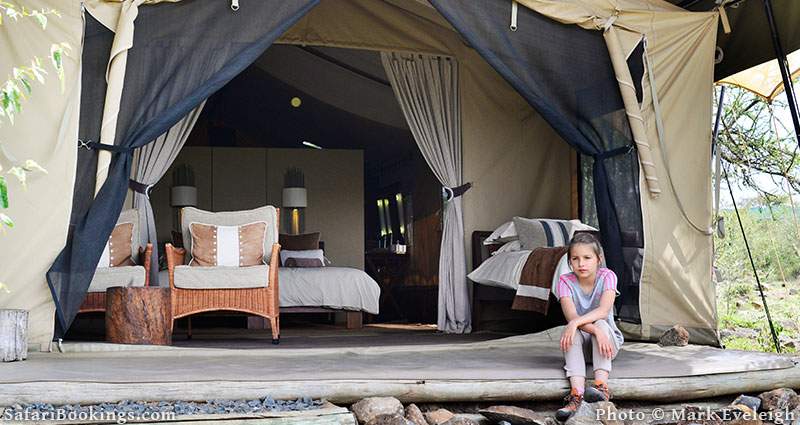
Depending on the ages of your children, the camp/lodge may require one adult to sleep in the same room or tent with the underage child (or children). This is a safety measure to avoid the situation where young children might wander out of their tent . Or they could react badly to a situation where an animal might approach the tent or even attack. Babysitters are often available to allow the parents to take a few hours out to enjoy an evening meal together without the kids.
7. Meals & Meal Times
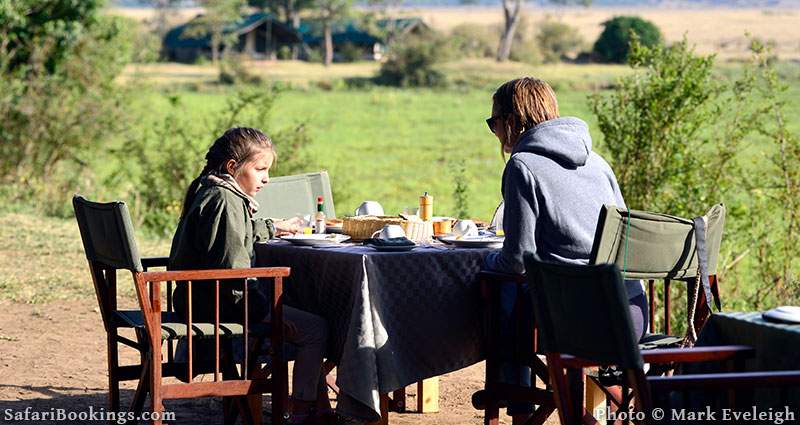
Meals and meal times are especially important for families going on safari with younger children. Advise the manager of your child’s dietary requirements and try to work out meal times that are suitable and agreeable for all. Some camps are able to arrange earlier meal times, but may then require a parent to be with the children when they go to bed. This is for safety reasons.
8. Safety
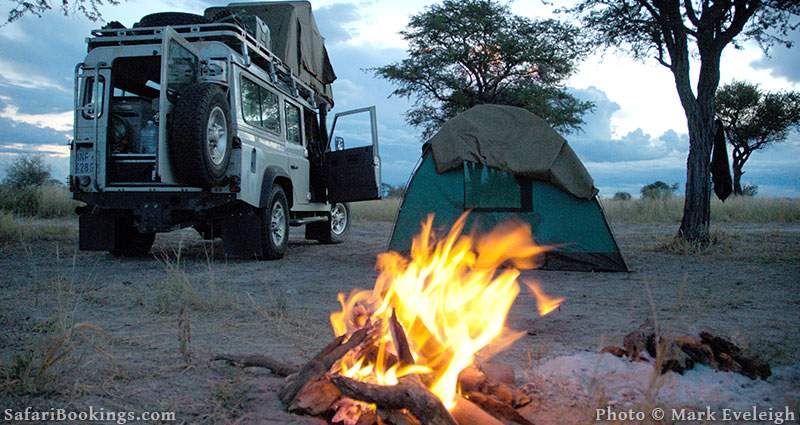
Very importantly, you should take note of the lodge/camp’s safety guidelines, including rules on walking and running in camp. Make sure that your children are aware of the restrictions and keep an eye on their movements. Many camps have no fence and you may need to keep a close watch on your young ones.
9. Swimming Pools
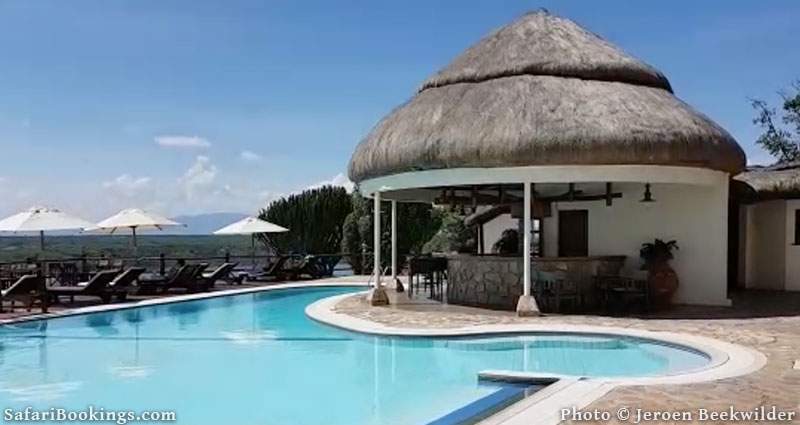
Many safari camps and lodges have swimming pools. If your child is not a confident swimmer, check the safety access to the swimming pool and pool fence. And accompany them if they want to swim as swimming is at your own risk.
10. General Precautions
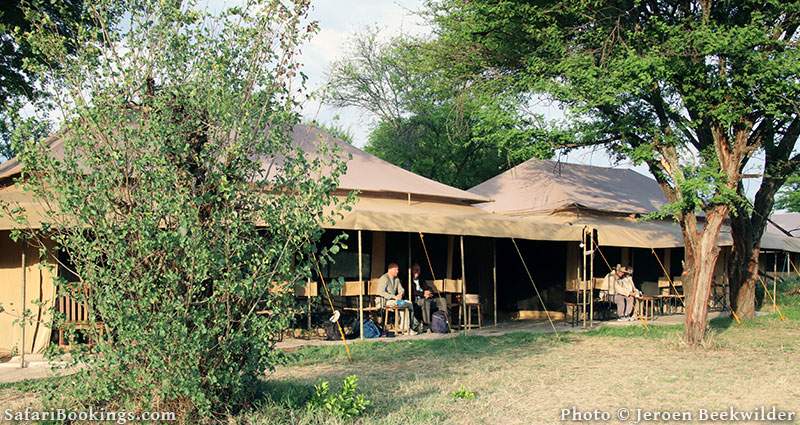
Some general precautions for families on safari include protection from the hot African sun. Hats and sunblock are a must on drives and walks. Mosquito repellent and covering up areas of exposed skin in the early evenings are essential, especially in malaria areas. Be sure to explain to your children about drinking only filtered or bottled water.
Most safari lodges and camps place a strong emphasis on peace, tranquility and getting back to nature. This may not be your children's style, but please keep in mind that it is the responsibility of parents to ensure that their children do not infringe upon the enjoyment of other guests.
Want To Go on a Family Safari in Africa?
Click on the button below to compare African family safaris offered by top-rated tour operators.
 By Patrick Brakspear
By Patrick Brakspear Patrick has been an Africa travel specialist, based in Australia, for over 10 years and prior to that was a safari operator in Mana Pools in Zimbabwe.
African Safari Tours
-
![3-Day To Serengeti, Mid-Range Shared Safari]()
3-Day To Serengeti, Mid-Range Shared Safari
$1,007 pp (USD)
Tanzania: Shared tour (max 6 people per vehicle)
Mid-range Lodge & Tented CampYou Visit: Arusha (Start), Serengeti NP, Central Serengeti NP, Ngorongoro Crater, Arusha (End)

Everlasting African Adventure
4.8/5 – 47 Reviews
-
![5-Day Exclusive Tanzania Private Safari]()
5-Day Exclusive Tanzania Private Safari
$1,700 pp (USD)
Tanzania: Private tour
Mid-range Lodge & Tented CampYou Visit: Arusha (Start), Tarangire NP, Serengeti NP, Ngorongoro Crater, Arusha (End)

Go Serengeti African Tours
4.9/5 – 468 Reviews
-
![9-Day Tanzania Mid-Range Wildlife & Culture Safari]()
9-Day Tanzania Mid-Range Wildlife & Culture Safari
$3,418 pp (USD)
Tanzania: Private tour
Mid-range Lodge & Tented CampYou Visit: Arusha (Start), Arusha NP, Tarangire NP, Lake Eyasi, Central Serengeti NP, Northern Serengeti NP, Ngorongoro Crater, Lake Manyara NP, Arusha (End)

Get Together Adventures
5.0/5 – 31 Reviews



 Subscribe to our newsletter
Subscribe to our newsletter
 Follow us on Instagram
Follow us on Instagram




